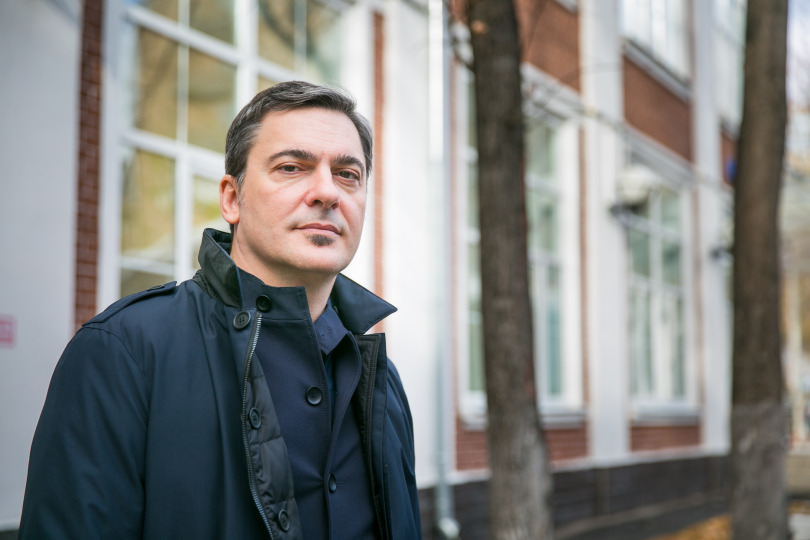HSE Conference to Discuss Foresight Research from Russia to Singapore
What should Russia’s policy be on Science and Technology? What do Russian and international foresight research results show? How is international cooperation in science developing? These are among the questions which will be discussed at the 5th annual international research conference on Foresight and STI Policy at HSE on 18th - 20th November.

'What Makes ICEF Special is the High International Standards of the Education it Provides'
On November 6 and 7 ICEF and the International Laboratory of Financial Economics (LFE) held the Fourth International Moscow Finance Conference. Christian Julliard, Academic Director of LFE, has talked to HSE News Service about the conference and about the education of future economists at the International College of Economics and Finance.
Without Advanced Education, Young People Likely to Stay Unemployed
The level of education has a direct impact on young Russians’ chances of getting a job. Young men and women with some post-secondary education – in particular those with higher education – experience a shorter transition to their first employment and a fairly low risk of staying unemployed, while those with just nine year of compulsory secondary school – in fact, 20% of Russians under 29 – are likely to remain unemployed for prolonged periods, according to Elena Varshavskaya, professor of the HSE Department of Human Resources Management.
HSE Takes Part in Columbia’s University Consortium
On November 6, the first module of the University Consortium began at Columbia University (New York). The Consortium was formed this autumn by Columbia, Harvard, the Free University of Berlin, Oxford, the Higher School of Economics, and the Moscow State Institute of International Relations. Students and faculty from the Faculty of World Economy and International Affairs represent HSE in the project.
‘Without Modern Science, a Country’s Prospects for Development Are Uncertain’
On November 10, the UNESCO Science Report: towards 2030 was presented in Paris. The report analyzes trends in R&D in different regions and countries. The chapter of the report devoted to Russian was prepared by HSE researchers Leonid Gokhberg and Tatiana Kuznetsova.
Migrant Flow from Central Asia to Russia Will Increase
In the near future, the number of migrants from Central Asia coming to work in Russia will increase – particularly from Tajikistan and Kyrgyzstan, countries where remittances from their citizens working in Russia stand at almost half of their respective GDPs, according to a joint study by the Eurasian Development Bank (EDB), the United Nations Development Programme (UNDP), the HSE Laboratory for Comparative Social Research (LCSR), and the Russian Academy of Sciences (RAS).
Studying Russian Writers on How War Alters Aesthetic Experience
Dr. Angelina Lucento is a Research Fellow at HSE International Center for the History and Sociology of World War II and Its Consequences. Her work focusses on art and war. In this interview with HSE English News she explains how family history brought her to research WWII and Russian culture and tells us why Moscow suits her so well for living and working as an international academic in her field.
It’s More Useful to Compare Students from Different Regions of a Single Country than from Different Countries
Professor Martin Carnoy of Stanford University and visiting professor at the Higher School of Economics, and Tatiana Khavenson, Research Fellow at the HSE Institute of Education, were among the authors of the report ‘An Analysis of the Impact of Education Policies on Student Achievement in the United States’, which was recently presented in Washington, DC. The key provisions of this report are of use when it comes to analyzing the situation in Russian education.
A Genuine Challenge for Humanity in the 21st Century
Professor Paul Kind, University of Leeds, led the International Centre for Health Economics, Management and Policy seminar at the HSE St Petersburg.
Positive Psychology — Even Gloomy People Can Be Contented
Ken M. Sheldon is Academic Supervisor at the HSE International Laboratory of Positive Psychology of Personality and Motivation. He talked to HSE English News about his collaboration with HSE and about working in an international environment.

